Uncategorized
-
 Health & Medicine
Health & MedicineHere are answers to 3 persistent questions about the coronavirus’s origins
Calls to double down on investigations into where SARS-CoV-2 came from — nature or a lab accident — are rising as answers remain scarce.
-
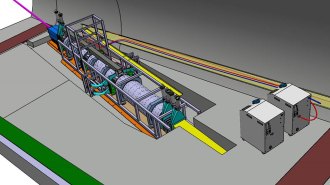 Particle Physics
Particle PhysicsIn a first, neutrinos were caught interacting at the Large Hadron Collider
Despite the LHC’s fame, all its detectors were oblivious to neutrinos. But not anymore.
-
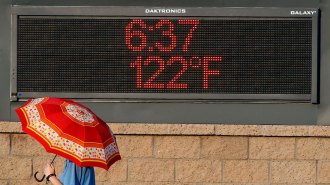 Climate
ClimateThe last 30 years were the hottest on record for the United States
Typical temps across large swaths of the country are now 1 to 2 degrees Fahrenheit higher than their 20th-century averages.
-
 Neuroscience
NeurosciencePlaying brain training games regularly doesn’t boost brainpower
Comparing brain training program users with those who don’t do the mini brain workouts, scientists found no proof that the regimens boosted brainpower.
-
 Science & Society
Science & SocietyA new memoir tells the life story of NASA ‘hidden figure’ Katherine Johnson
"My Remarkable Journey" gives the backstory of NASA mathematician Katherine Johnson, the central character of the 2016 film "Hidden Figures."
-
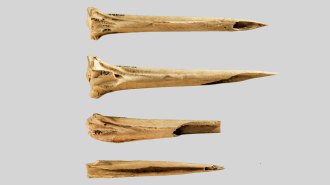 Archaeology
ArchaeologyThe oldest known tattoo tools were found at an ancient Tennessee site
Sharpened turkey leg bones may have served as tattoo needles between 5,520 and 3,620 years ago, at least a millennium earlier than previously thought.
By Bruce Bower -
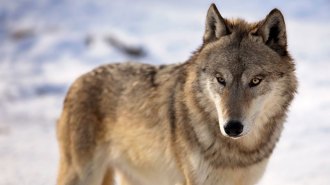 Animals
AnimalsGray wolves scare deer from roads, reducing dangerous collisions
The predators use roads as travel corridors, creating “a landscape of fear” that keeps deer away and saves millions of dollars a year, a study finds.
By Jack J. Lee -
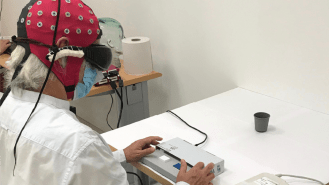 Genetics
GeneticsA gene-based therapy partially restored a blind man’s vision
Light-activated proteins inserted in eye nerve cells and special goggles help the man, who lost his sight due to retinitis pigmentosa, see objects.
-
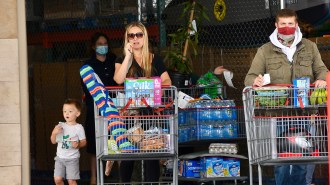 Health & Medicine
Health & MedicineThe CDC’s changes to mask guidelines raised questions. Here are 6 answers
Experts weigh in on the U.S. CDC’s recommendation fully vaccinated individuals removing masks indoors and what it means for the pandemic’s future.
-
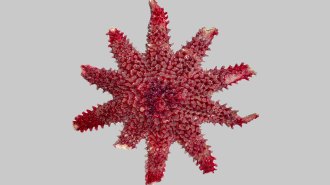 Animals
AnimalsUrchin mobs team up to butcher sea stars that prey on them
Urchins are important herbivores in nearshore ecosystems, but are not strict vegetarians, with hunger that extends even to munching predatory nemeses.
By Jake Buehler -
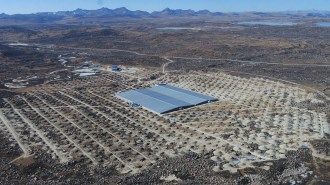 Astronomy
AstronomyRecord-breaking light has more than a quadrillion electron volts of energy
Hundreds of newly detected gamma rays hint at cosmic environments that accelerate particles to extremes.
-
 Earth
Earth2021 will be another busy year for the Atlantic hurricane season
The average season is busier than it used to be, as NOAA predicts 13 to 20 named Atlantic storms between June 1 and November 30.